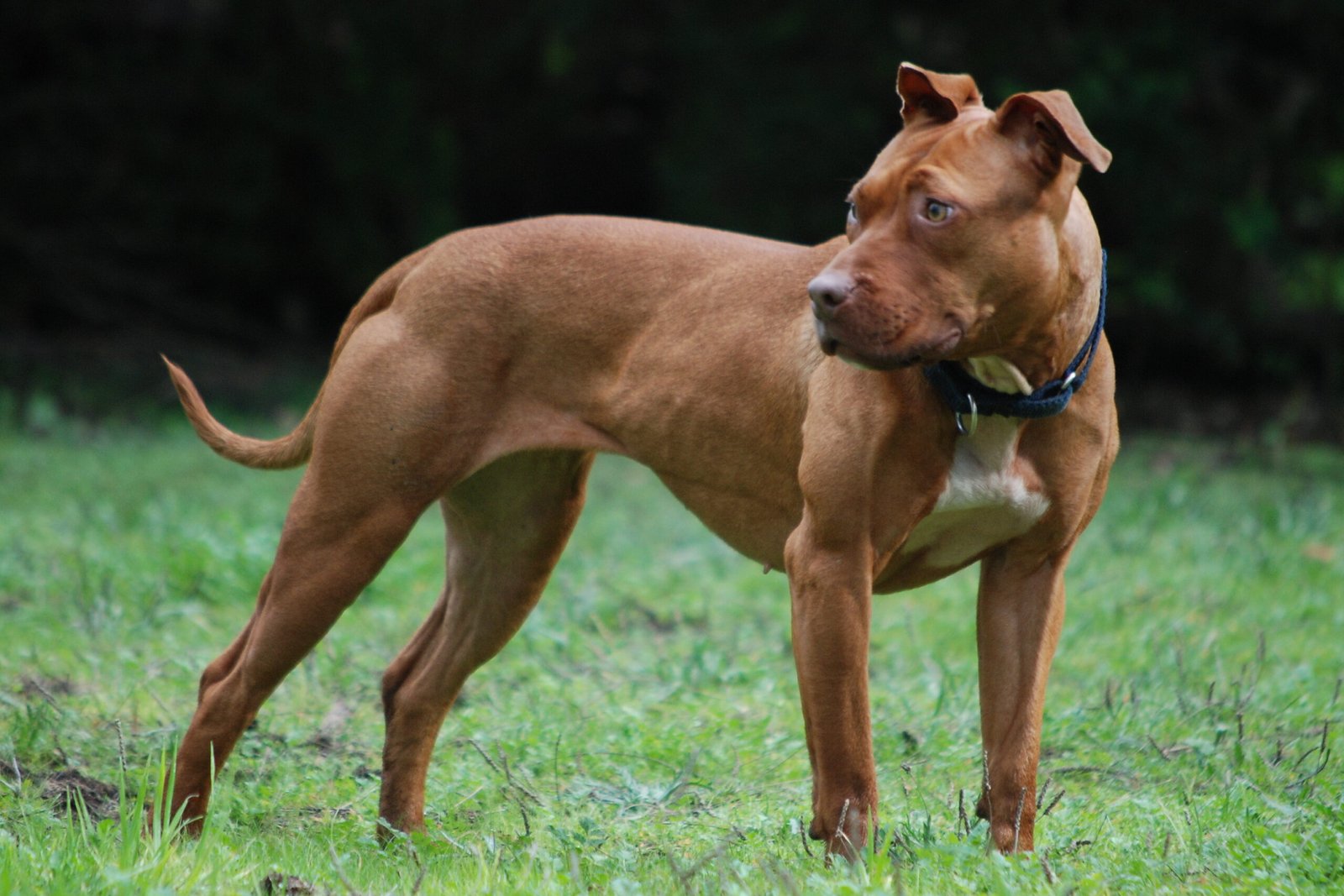Dogs are often referred to as man’s best friend, but just like humans, they come with their own personalities and quirks. While most dogs are loving and gentle, some breeds are known for having more aggressive tendencies. It’s important to understand these breeds, not to stigmatize them, but to ensure they are given the proper care and training they need. Let’s dive into the world of these feisty companions.
Rottweiler
Rottweilers are known for their strength and protective nature. Originally bred as herding dogs, they have a natural instinct to protect their territory and family. This can sometimes manifest as aggression if they perceive a threat. Despite this, many Rottweilers are gentle giants, loving towards their families. Proper socialization and training from a young age can help channel their protective instincts positively. It’s crucial for potential owners to understand the commitment required to raise a well-behaved Rottweiler.
German Shepherd
German Shepherds are intelligent and versatile dogs, often employed in police and military roles. Their keen sense of duty makes them excellent guard dogs, but it also means they can become aggressive if not properly managed. They require ample mental and physical stimulation to prevent boredom and frustration. Owners should engage them in activities that challenge their intelligence, such as obedience training or agility courses. When treated with respect and understanding, German Shepherds can be loyal and loving companions.
Chow Chow
The Chow Chow, with its distinctive lion-like mane, is a breed that often surprises people with its aggression. Known for their aloof and independent nature, Chow Chows can be wary of strangers and other animals. They are not naturally social butterflies and require consistent training to ensure they remain well-mannered. Owners should exhibit patience and firmness, guiding their Chow Chow with a gentle hand. With the right environment, they can form strong bonds with their families.
Chihuahua
While their small size might suggest that Chihuahuas are harmless, they are actually one of the feistiest breeds. Known for their bold personalities, they often make up for their size with a surprisingly loud bark. Chihuahuas can be territorial and may not always get along with other dogs. Early socialization is crucial to help them adapt to different environments and people. Despite their fiery nature, they can be affectionate and devoted pets with the right guidance.
Doberman Pinscher
Dobermans are sleek, athletic dogs known for their loyalty and intelligence. They have a reputation for being protective, which can sometimes be mistaken for aggression. Dobermans need a strong leader who can provide consistent training and boundaries. Regular exercise is essential to keep them happy and prevent destructive behaviors. When raised in a loving environment, Dobermans can be gentle and reliable family members, always eager to please their humans.
Akita
The Akita is a dignified and powerful breed, originating from Japan. Known for their courage and loyalty, they can be reserved with strangers, which may lead to aggressive behaviors if not properly socialized. Akitas have a strong prey drive, so they may not be the best fit for homes with smaller pets. Owners should focus on positive reinforcement techniques to instill good behavior. With the right approach, Akitas can be devoted companions, fiercely loyal to their families.
Alaskan Malamute
Alaskan Malamutes are strong, energetic dogs bred for sledding in harsh conditions. Their independent nature can sometimes be perceived as stubbornness or aggression. Malamutes require an active lifestyle and thrive in environments where they can expend their energy. Training should be consistent and patient, focusing on building a strong bond between dog and owner. With the right care, Malamutes can be affectionate and gentle, forming strong bonds with their families.
Jack Russell Terrier
Jack Russell Terriers are small, lively dogs with a big personality. Their intelligence and energy can sometimes lead to aggressive behaviors, especially if they become bored. They need plenty of physical and mental stimulation to keep them happy. Owners should provide them with opportunities to exercise and engage their minds. Proper training and socialization from an early age are essential to prevent unwanted behaviors. When channelized correctly, their energy can make them wonderful and entertaining family pets.
Dalmatian
Dalmatians are known for their distinctive spots and high energy levels. They are intelligent and have a strong desire to please, but they can also be stubborn and aggressive if not properly trained. Dalmatians need an active lifestyle with plenty of exercise to keep them happy and balanced. Consistent training and socialization can help them become well-mannered companions. With the right care, they can be loyal and affectionate members of the family, often forming strong bonds with their owners.
Pit Bull Terrier

Pit Bulls are often misunderstood due to their powerful build and history in dog fighting. However, with the right training and socialization, they can be some of the most loving and loyal dogs. They require a firm but gentle hand, emphasizing positive reinforcement to encourage good behavior. Pit Bulls thrive in environments where they feel secure and loved. When given the proper guidance, they can be affectionate and trustworthy companions, often forming strong bonds with their families.

Linnea is a born and bred Swede but spends as much time as possible in Cape Town, South Africa. This is mainly due to Cape Town’s extraordinary scenery, wildlife, and atmosphere (in other words, because Cape Town is heaven on earth.) That being said, Sweden’s majestic forests forever hold a special place in her heart. Linnea spends as much time as she can close to the ocean collecting sea shells or in the park admiring puppies.





